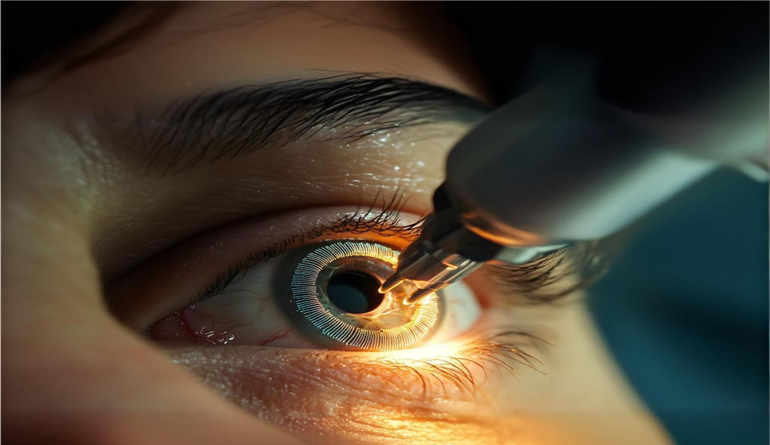Book an Appointment
×Corneal Transplants
While full-thickness corneal transplants are a regular feature, TrueVision Eye Hospitals is the only eye hospital to perform lamellar corneal transplants. In these procedures, only the diseased layer of the cornea is transplanted, which salvages more of the patient’s tissue and greatly reduces rejection rates while significantly improving vision. Get the right corneal treatment today!!

Corneal Diseases
A wide range of disorders affecting the cornea, the transparent, dome-shaped front surface of the eye, are referred to as corneal diseases. The cornea is essential for protecting the eye and focusing light. If left untreated, corneal disorders can result in blindness, pain, and vision impairment.

Symptoms of Corneal Diseases
- Blurred or distorted vision
- Eye pain and discomfort
- Redness and swelling
- Sensitivity to light (photophobia)
- Foreign body sensation in the eye
Types of Corneal Transplants
Corneal transplants are surgical procedures that substitute healthy donor tissue for diseased or damaged corneal tissue to restore eyesight. Depending on which corneal layers are damaged and require replacement, there are various kinds of corneal transplants:
- Penetrating Keratoplasty (PK): Full-thickness corneal transplant.
- Endothelial Keratoplasty (EK): Replacement of the innermost corneal layer.
- Deep Anterior Lamellar Keratoplasty (DALK): Replacement of the front layers of the cornea, leaving the endothelium intact.
- Anterior Lamellar Keratoplasty (ALK): Replacement of the outer layers of the cornea.
The location and degree of corneal damage determine which transplant type is best for achieving optimal visual results with the least amount of risk.
Post-Surgery Care of Corneal Transplants
Post-surgery care is essential to promote recovery, avoid complications, and ensure the success of corneal transplants. The following are important parts of care after a corneal transplant:
- Medication: Use of prescribed medications to prevent infection and reduce inflammation.
- Protecting the Eye: Wearing protective eyewear and avoiding activities that could injure the eye.
- Lifestyle Adjustments: Making changes in daily activities to support healing.
- Regular Follow-up Appointments: Scheduling regular check-ups with your corneal transplant specialist to monitor recovery.
- Recognizing Signs of Rejection: Being aware of symptoms that could indicate rejection, such as increased redness, pain, or vision changes.
- Long-term Care: Adhering to long-term care guidelines to maintain eye health.
Book Appointment
Ensure your eyes are in expert hands with the best corneal transplant specialist in Khajaguda, Hyderabad. We provide comprehensive and compassionate care for all your cornea replacement and cornea transplant needs.


